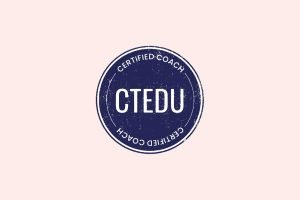Part Two of the High Cost of Coaching Series.
Scarcity has a profound impact on coaching spaces and how we, as coaches, create and structure our income.
As a fellow Professional Coach, Kate Holly, wrote:
“One thing that fascinates me about the scarcity mindset is that it is the ultimate shitty legacy of the colonizers who ‘won’ ownership of much of the world’s land and resources, and became a dominant cultural influence with their mythos that for one party to gain, another must lose, which justified centuries of abhorrent and oppressive behaviors.
Without meaning to, most of us have internalized, and continue to uphold this crap mindset on their behalf, even though it makes us feel worse, brings us terrible outcomes on a personal level, and brings us one global catastrophe after another on a systemic level.
We are still playing their game, trying to become ‘winners’ in a rigged system that is based on values that are unsustainable, unpleasant, and exhausting to uphold.”
This isn’t just the birthplace of scarcity as a lived practice, it’s a guiding force in how we treat the land and Her resources, how we treat people inside our businesses, how we treat money, and how we diminish those with “less” and protect those with “more.”
It’s important to emphasize that scarcity is not a myth but a stark reality for millions worldwide. Many individuals are grappling with insufficient access to basic needs such as food, clean water, and essential healthcare like vaccines and antibiotics. And there are those who struggle to earn a viable income to sustain themselves and their families.
While scarcity is an undeniable reality for many globally, it becomes problematic when it originates from a mindset that’s disconnected from one’s actual circumstances. This mindset rings the fear bells, bypassing what is true for what might be true one day.
When our belief system revolves around the notion of “not enough,” it polarizes existence into two roles: winners and losers. Winners are perceived to have earned their success through some noteworthy effort, while losers are cast as lacking the essential qualities for achievement.
This dangerous paradigm perpetuates the narrative that winners succeeded because they simply desired it more, and losers lack the drive to attain greater success.
The inherent risk lies in winners staunchly believing they rightfully earned their position through hard work and merit alone, leading them to withhold opportunities from those yet to arrive by asserting, “I struggled to reach this point, and if you are truly worthy, you will do the same.”
Let’s return to Kate’s quote, where she accurately places quotations around “won.” Winning often presupposes there was an equal match with agreed-upon rules and a fair playing field.
But the roots of scarcity weren’t planted in equitable soil. There was no winning, there was taking. There was theft. There was dismantling and decimating whole populations of people and there was a story about “rightful worthiness” at the center of it all to propel these actions forward.
If we want to truly dismantle the crux of scarcity, heal, and prepare new systems based on access, sufficiency, and true enoughness as coaches, we need to hit pause.
I have a vow to do no harm as a coach and to move people toward choice, and I believe this starts with being deeply honest with myself and dismantling my own internalized attachments to scarcity.
Dismantling scarcity as a business owner is also some of the hardest work I’ve ever done, in part because it’s so pervasive and subtle. Aside from that, practices that defy scarcity norms may not align with the prevailing cultural definition of success, occasionally leading me to question if I am on the right path.
While some examples of scarcity may be apparent, it has also insidiously crept into my mindset in less obvious ways, adding an extra layer of difficulty to the process.
For example:
Charging fees for payment plans. This, I’ve learned, is problematic because it favors those in the position to make larger upfront payments while punishing those most in need of greater access.
Overcoming objections in enrollment conversations. This, I’ve learned, is problematic because it assumes that the client “doesn’t want it bad enough” and that a non-sign-up means the client lacks the desire for change. It also reinforces the business owner’s fear that someone who leaves without enrolling will never return.
Enforcing non-refundable policies. This, I’ve learned, is problematic because it takes away the client’s choice to discern if the work is the right fit for them. Unnecessarily holding someone to their agreement when/if the work is no longer a good fit is not upholding accountability; it’s entrapment.
Charging your “worth.” This, I’ve learned, is problematic because worth is an arbitrary measurement of value and, within the dominant hegemony, there are specific identities that can implement inflated pricing models more easily than others. Worth then gets toted around as “more worth it or worthy” without respect to how much one’s privilege accounts for their supposed value.
Countdown marketing language. This, I’ve learned, is problematic because while we may in fact be selling something that is only available or open for a specific amount of time, language such as, “Last chance,” “Never again at this price,” or “Only one spot left” bypasses someone’s ability to make an informed decision because, as social creatures, we don’t want to be left out.
I understand how enticing these practices can be—I’ve engaged in all of them.
If remnants of these practices persist in your business, it’s essential to be compassionate with yourself. Many of these behaviors are deeply ingrained in our business culture, often considered not only acceptable but the norm.
Breaking away from perpetuating scarcity, even with a single change like eliminating fees for payment plans, means you are challenging a well-established system—and this can be uncomfortable.
As popular as scarcity-thinking is in business, of equal fame is the myth that your profit line is a sign of living your purpose or being a good human. If this were undeniably true, there wouldn’t be so much rampant corruption among so many of the world’s wealthiest, which is a manifestation of the common ego-based approach to abundance.
In an ideal scenario, an abundance of resources would lead to a surge in philanthropy and efforts to eliminate the root causes of scarcity. Unfortunately, the current landscape is marked by excessive privatization and philanthropists hoarding their vast wealth.
But the abundance on the other side of scarcity comes with its own risks. Instead of landing on a fear of not enough, we might land on an inflated belief in unlimited expansion.
It might also come with the side effect of believing—even when they tell you they cannot afford you—that if your clients want it badly enough, the money will magically appear. And the harshest possible side effect is equating abundance with worth, alignment, or living from your highest purpose.
The true potential of abundance lies in its application to mend and solve broken systems, fostering social support for critical needs such as healthcare, child care, education, and pay equity. But, when abundance is embraced only for the sake of one’s own ego-based goals, it contributes to the belief among the excessively wealthy that they are inherently more deserving and worthy of success.
This is the voice I’ve listened to since the inception of my business and the voice I thought would be satisfied when I hit my version of not enough.
And then April 2021 happened.
This was the best month to date in my business. The number isn’t important, the implications are. I thought that when I made this amount of money I would feel accomplished—like I had just summited a huge mountain and I’d have an undeniable feeling of success.
But on the last day of the month, after crunching my final numbers and writing myself a paycheck, I was left with an unexpected and unsettling emotion: emptiness. And this, to be transparent, scared the shit out of me.
I started to ask myself, “What if my bank account balance was not a reward for living my dharma? What if my business growth wasn’t a sign of doing good or living congruently?”
Inside the disillusionment of the moment, I felt a little bit tricked.
Scarcity is a hungry ghost. As Tara Brach says:
“In Buddhist cosmology, one of the psychic domains that is described is the Realm of the Hungry Ghosts. The hungry ghost figures are depicted with scrawny little necks and huge bellies — riddled with powerful desires they can never really satisfy.”
The hungry ghost, or scarcity-thinking, is not in the business of being satiated. It’s only in the business of longing. And that longing can only be tended to through the hope that there is in fact a day of reckoning where you will be completely and utterly fulfilled. But so long as scarcity is at the helm of this adventure, no such arrival is possible.
Upon my own “arrival,” I felt very, very lost. I knew right then and there, I needed a new metric—and quick.
So how do we toss the coin of scarcity and abundance out altogether? How do we disrupt the scarcity-thinking/abundance dichotomy?
One word: Sufficiency
As Lynne Twist shares in her book Living a Committed Life:
“It’s important to make a very clear distinction between sufficiency and abundance. Sufficiency is not an amount of anything. It’s not halfway between more than you need and less than you need. It’s an experience of being met by the universe with exactly what you need…True abundance does exist, and it flows through the portal as sufficiency – the recognition of the beauty and wholeness of enough.”
The word ‘sufficient’ has had an unfair reputation. It’s been used to quantify stopping, halting, or quitting shy of one’s potential.
But if we don’t know where to land, if we can’t name what is enough, we become servants of the pursuit itself and not beneficiaries of what we spent so much energy and effort endeavoring to build in the first place.
So again, I have to ask: What is enough for you? What is your measurement of plenty?
I am still working on my new metric, but I feel a little closer every day. For me, enough is a healthy and sustainable business; one that I have the skills to maintain and the resources to grow in a way that meets new needs as they arise. Enough is knowing my work works and that I am practicing my coaching in an honest, ethical way with real-time feedback, open-door policies, and the flexibility to change my ways when it’s time.

And the one that took me years to both dismantle the internalized scarcity around and unpack my own worthiness within: that enough means not scaling my business beyond the deep work required to be an effective coach.
Each of these enoughness-markers has real numbers attached to them, like gross revenue, salary, tax duties, hours of service per year, the number of clients I can meet weekly, and paying my support team adequately to meet the needs of their lives.
Each of these enoughness-markers can also be overextended to a point where my sustainability is impaired as I move outside my values, resources, time, intent, and current ability.
Does this mean I won’t make a million dollars a year? Yup. Does it mean I won’t make even half that per year? Probably. And when I don’t produce that kind of income, the scarcity-thinking/abundance dichotomy is there to remind me I may be wasting my potential and that I just might not be successful enough yet.
It’s my choice in such moments to take scarcity out of the driver’s seat of my work and gently remind myself of Tara Brach’s words:
“…we can notice what is happening and choose to pause and bring a real tenderness to the parts of us that feel ashamed and empty…the hole in our soul. We can remember that love is always loving us. We can touch a quality of grace and tenderness that can hold us. Practicing mindfulness and self-compassion can free our hearts from the suffering and shame of the hungry ghost.”
To begin facing the Hungry Ghosts of scarcity-thinking and the ego-based approach to abundance with “mindfulness and self-compassion,” we might consider beginning this inquiry with a few journal prompts:
- What, in your own words, is your definition of enough?
- Reflect on a time in your life or business when you found yourself experiencing enough. How did you know it was enough? How did it feel? What fears were absent? What, if anything, did it reinforce for you?
- When do you find yourself in the midst of scarcity-thinking? What are the signs and/or signals? How can self-compassion support you?
- What, aside from earning money, drives you to be a coach?
*De-Conditioning the Hungry Ghosts by Tara Brach – https://www.psychologytoday.com/us/blog/finding-true-refuge/201709/de-conditioning-the-hungry-ghosts

Andrea Leda
Andrea Leda is a sought-after master coach, teacher, and mentor with over 10,000 hours of coaching experience since she began her practice in 2010. She is dedicated to helping each of us learn to trust our own innate value and worthiness so that we can show up for the work we’re truly here to do.
By harnessing her deep and practical knowledge of powerful coaching techniques—including NLP, journal therapy, mental emotional release work, and BodyMAP coaching—Andrea supports heart-centered coaches and visionary change-makers in reaching their fullest potential in both life and business. In her coaching work, she has been called "a force to be reckoned with and a brave woman who truly makes this world go round.”
In 2022, Andrea founded Braver Coach—a mission, a community, and an educational platform for coaches who are reimagining coaching by bringing forth all of who they are. As a certified training organization through the Association of Coaching, Andrea equips coaches so that they feel empowered to do the work they are called to do—and help their clients and communities do the same.
















Be First to Comment